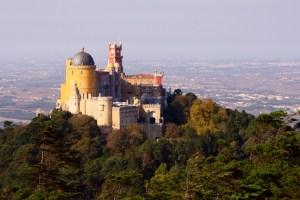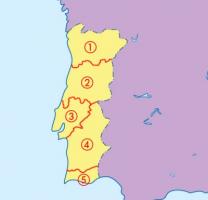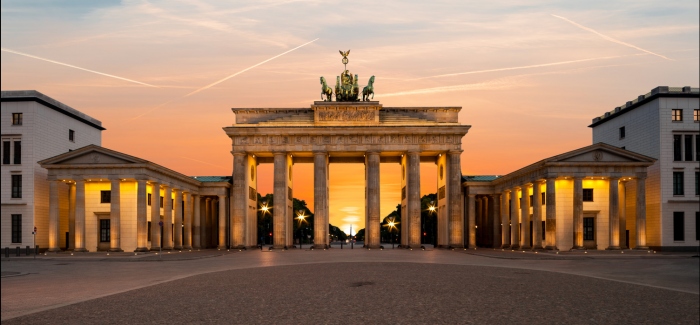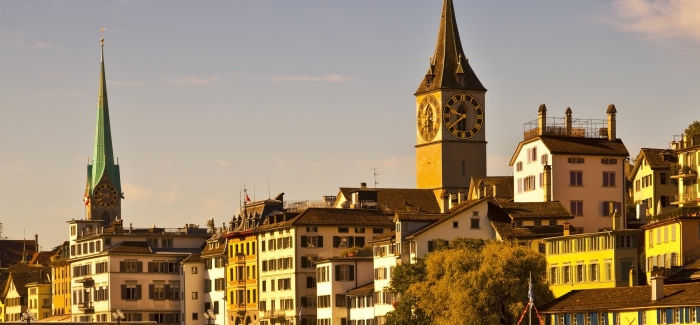TopUniversities.com has drawn up a list of the top 10 things any student should do when studying abroad in Portugal in order to make the most of your time in the country.
Sometimes overshadowed by its colourful neighbor Spain, Portugal is a country with its own distinct blend of culture, heritage and cuisine. And in recent years a growing number of international students are discovering Portugal’s many charms.
From the beautiful beaches of the Algarve to the bustling streets of the capital, Lisbon, if you’re looking for a study abroad experience with a difference, you can be sure to find it in Portugal.
1. Lisbon – Portugal’s capital
Nearest universities: Universidade Catolica Portuguesa, LISBOA ; Universidade Nova de LISBOA ; Universidade Técnica de Lisboa
There’s no better place to start exploring Portugal than in its capital city, Lisbon. A city of maritime history, the Monument to the Discoveries on the waterfront of Belém recognises the Portuguese navigators who set sail on a voyage of discovery. It’s one of many majestic monuments that can be found in and around Lisbon, alongside the Castle of Sao Jorge (St George), which provides one of the best views of the city.
Walk the shopping boulevards, marvel at the beautiful architecture, or simply soak up the atmosphere that this cosmopolitan city enjoys – Lisbon is a capital city with charm, character and a way of life that will appeal to any international student studying abroad.
Did you know? Lisbon is the second most popular European city for tourists, after Barcelona in neighboring Spain.
 2. Escape to Sintra
2. Escape to Sintra
Nearest universities: Universidade Catolica Portuguesa, LISBOA ; Universidade Nova de LISBOA ; Universidade Técnica de Lisboa
There’s no escaping assignments, exams and deadlines when you’re an international student studying abroad, but take a day trip to Sintra and you’ll forget the demands of everyday life – at least for a day.
A magical fairytale of a place, Sintra – a short train ride from Lisbon – is a UNESCO World Heritage Site, protected for its 19th Century Romantic architecture. A summer residence of the Kings of Portugal, it was also a favourite haunt of Lord Byron, who described the village as “the most beautiful in the world.” We bet you’ll agree once you’ve set eyes on this gem.
3. Soak up the sun on the Algarve
It’s a popular destination for many a vacationer, so don’t expect to be able to find too secluded a spot on the beach of Portugal’s Algarve - but it’s still well worth the visit. From the West to the East, there is plenty to explore along this stretch of coast: Faro, the capital of the Algarve; Tavira, the Portuguese gateway to Spain; Albufeira, Lagos and Portimao.
All are popular resort towns for beach goers, sporting enthusiasts, or those simply looking to relax, unwind and catch some rays. If you need to recharge your batteries while studying abroad in Portugal, then escape to the Algarve – one visit simply won’t be enough.
 4. Evora
4. Evora
Nearest universities: Universidade Catolica Portuguesa, LISBOA ; Universidade Nova de LISBOA ; Universidade Técnica de Lisboa
One of Portugal’s most picturesque of cities with its Roman temple, city walls and surrounding vineyards, Evora also boasts a lively student population. Just 130kms east of Lisbon in the central Alentejo region, Evora is another of Portugal’s UNESCO World Heritage Sites.
The University of Evora is Portugal’s second oldest university, and offers courses in the arts, social sciences, science and technology, and nursing. Philosophize with classmates as you wander through the central square, debate international politics in a corner cafe or simply enjoy walking Evora’s cobbled streets, laden with history you can only begin to comprehend in the classroom.
5. Feast on fish in Porto
Nearest universities: University of PORTO
If you can’t resist a dish of the finest seafood then you’ll be right at home as a student studying abroad in Portugal. With so much of its border made up of coastlines, it’s no wonder fish is a staple part of the Portuguese diet. And there’s no better place to eat it than Porto, the second largest city in Portugal. Boasting beautiful Romanesque, gothic and neoclassical architecture in the form of churches, palaces and cathedrals, the UNESCO-protected centre of Porto is well worth exploring.
Did you know? The Latin name of Porto, Portus Cale, is the origin of the name "Portugal" for the whole country.
 6. Catch a football match
6. Catch a football match
The Portuguese may be a relatively quiet bunch, content to get on with their own thing while living in a country of sunshine, seafood and world heritage sites - but get them to a football match and you’ll see another side to them altogether.
The Portuguese are passionate about football, and so they should be with the success of Portuguese players in the international big leagues, such as Cristiano Ronaldo. Whether you enjoy watching 22 men on a field kicking a leather ball around or not, a trip to a football match is a must to complete your study abroad experience in Portugal.
7. Coimbra
Nearest universities: University of COIMBRA
It’s perhaps no surprise that over 10,000 students – both domestic and international – come to study in Coimbra each year. Not only one of the oldest universities in the Portuguese-speaking world, but also one of the oldest in Europe, Coimbra has been dubbed Portugal’s equivalent to Oxford.
Nor should it be a surprise that the city is known for its student festivals. From Latada or Festa das Latas (the Tin Can Parade), to Queima das Fitas (The Burning of the Ribbons), study abroad in Coimbra and you’ll not only take home a qualification from one of the world’s top universities (it has consistently ranked in the top 400 of the QS World University Rankings over the last four years) - you’ll also have student memories to last you a lifetime.
 8. Piri piri chicken – some like it hot!
8. Piri piri chicken – some like it hot!
Studying abroad is all about experiencing a new culture – from learning a new language, to partaking in traditional festivities. One of the real cultural experiences you’ll gain studying in Portugal is its cuisine, in particular the fiery dish that is Piri Piri Chicken.
Originating in Portugal’s neighbouring Africa, the piri piri peppers are actually known as “African Devil”. With that in mind, you may wish to order the mild version of the dish, although if you’re game, why not give yourself something extra to write home about and eat it like the locals do – hot!
9. Portugal’s festivals
Much like its neighbour Spain, Portugal is a country of colour, music and festivities. Each year, festivals celebrating art, culture, poetry, languages, religion, food and even summer, see locals – and tourists – take to the streets, the beaches or town squares to join in the revelry.
From Festival Silencio!, held each year in June and dedicated to new artistic and urban cultural expression, to the Feira Presunto Monchique held every July - a festival in which ham is the star of the show - you’ll see much of the country if you choose to partake in a few such festivities during your time studying abroad.
 10. Portugese tiles
10. Portugese tiles
Among the many tourist shops selling fridge magnets, t-shirts and tacky souvenirs you’ll find shops overflowing with beautiful Portuguese tiles. Known as azulejos, these tiles – although originally from Egypt – can be found throughout the country in churches, monasteries, palaces, even railway stations.
If these colourful and artistic treasures capture your attention while studying abroad in Portugal, visit the country’s tile museum, Museu Nacional do Azulejo in Lisbon. Depicting historical and religious scenes, this is one souvenir you will want to take home.
Once you’ve finished those:
1. Take a walk through Portugal’s national park, Parque Nacional de Peneda Geres
2. Visit the chapel of bones in Faro
3. Head to the South-western most point of Europe, the Cape of St Vincent
4. Feast on Octopus Risotto – if you dare!
5. Learn some Portuguese – it’s a language all of its own!
 Portugal's top universities by region
Portugal's top universities by region
1. North University of PORTO
2. Centro University of COIMBRA;
3. Lisboa Universidade Catolica Portuguesa, LISBOA ; Universidade Nova de LISBOA ; Universidade Técnica de Lisboa
4. Alentejo
5. Algarve











